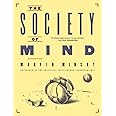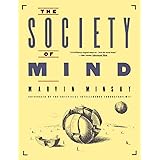
Enjoy fast, free delivery, exclusive deals, and award-winning movies & TV shows with Prime
Try Prime
and start saving today with fast, free delivery
Amazon Prime includes:
Fast, FREE Delivery is available to Prime members. To join, select "Try Amazon Prime and start saving today with Fast, FREE Delivery" below the Add to Cart button.
Amazon Prime members enjoy:- Cardmembers earn 5% Back at Amazon.com with a Prime Credit Card.
- Unlimited Free Two-Day Delivery
- Streaming of thousands of movies and TV shows with limited ads on Prime Video.
- A Kindle book to borrow for free each month - with no due dates
- Listen to over 2 million songs and hundreds of playlists
- Unlimited photo storage with anywhere access
Important: Your credit card will NOT be charged when you start your free trial or if you cancel during the trial period. If you're happy with Amazon Prime, do nothing. At the end of the free trial, your membership will automatically upgrade to a monthly membership.
Buy new:
$29.25$29.25
Ships from: Amazon.com Sold by: Amazon.com
Save with Used - Good
$21.95$21.95
Ships from: Amazon Sold by: Hermit's Grove Books & Oddities

Download the free Kindle app and start reading Kindle books instantly on your smartphone, tablet, or computer - no Kindle device required.
Read instantly on your browser with Kindle for Web.
Using your mobile phone camera - scan the code below and download the Kindle app.

OK
Vehicles: Experiments in Synthetic Psychology 58042nd Edition
Purchase options and add-ons
These imaginative thought experiments are the inventions of one of the world's eminent brain researchers. They are "vehicles," a series of hypothetical, self-operating machines that exhibit increasingly intricate if not always successful or civilized "behavior." Each of the vehicles in the series incorporates the essential features of all the earlier models and along the way they come to embody aggression, love, logic, manifestations of foresight, concept formation, creative thinking, personality, and free will. In a section of extensive biological notes, Braitenberg locates many elements of his fantasy in current brain research.
- ISBN-100262521121
- ISBN-13978-0262521123
- Edition58042nd
- PublisherBradford Books
- Publication dateFebruary 7, 1986
- LanguageEnglish
- Dimensions5.28 x 0.47 x 8.02 inches
- Print length168 pages
Frequently bought together

Customers who viewed this item also viewed
Editorial Reviews
Review
About the Author
Product details
- Publisher : Bradford Books; 58042nd edition (February 7, 1986)
- Language : English
- Paperback : 168 pages
- ISBN-10 : 0262521121
- ISBN-13 : 978-0262521123
- Item Weight : 2.31 pounds
- Dimensions : 5.28 x 0.47 x 8.02 inches
- Best Sellers Rank: #437,439 in Books (See Top 100 in Books)
- #693 in Medical Cognitive Psychology
- #1,173 in Cognitive Psychology (Books)
- #12,969 in Unknown
- Customer Reviews:
About the author

Discover more of the author’s books, see similar authors, read author blogs and more
Customer reviews
Customer Reviews, including Product Star Ratings help customers to learn more about the product and decide whether it is the right product for them.
To calculate the overall star rating and percentage breakdown by star, we don’t use a simple average. Instead, our system considers things like how recent a review is and if the reviewer bought the item on Amazon. It also analyzed reviews to verify trustworthiness.
Learn more how customers reviews work on Amazon-
Top reviews
Top reviews from the United States
There was a problem filtering reviews right now. Please try again later.
I've built many robots, which would fall into the book's early chapters in terms of complexity of autonomous behavior. I bought this to learn about methods for advanced autonomous behavior. And this book delivers on that goal, but it is also so much more! The first chapter is so concise and lovely, it is almost poetic. The humor and creativity remind me of Stanislaw Lem. The rich, elegant, density and brevity remind me of The Old Man and the sea. This book covers the workings of autonomous robotics for the novice to the advanced roboticist, but it is also sophisticated literature for anyone. The author is actually a Neurologist!
Loved it the first time, and loved (secretly rereading) then giving to an computer nerd friend.
Still, it's an excellent book for getting your brain in gear.
Yet despite VB’s defense of philosophy and frequent recourse to it, I felt nonetheless that the book has an excessively reductionist streak. The formula “uphill analysis and downhill synthesis” is repeated often: here uphill and downhill refer to ease of doing something. VB is suggesting that it’s easier to build something that exhibits certain organism-like behaviors (synthesis) than to figure out what structures and circuits cause those behaviors in the organism (analysis). He seems to infer from this, though, that nothing more than this behavioristic approach is needed to explain consciousness.
E.g., in Vehicle 12 he likens the automaton’s behavior to a logistic map, an example of deterministic chaos (albeit without using this terminology). He then claims that this vehicle exhibits free will, because an observer isn’t able to predict its behavior. Anticipating a philosophical objection that this isn’t really free will even though it may look like it, VB replies:
“[W]hoever made animals and men may have been satisfied, like myself, a creator of vehicles, with something that for all intents and purposes looks like free will to anyone who deals with his creatures. This at least rules out the possibility of petty exploitation of individuals by means of observation and prediction of their behavior. Furthermore, the individuals themselves will be unable to predict quite what happens in their brains in the next moment. No doubt this will add to their pride, and they will derive from this the feeling that their actions are without causal determination. [@69].”
This response, and the entire vehicle program, seem not to account for internal experience. Even if I can't see your inner life, where does my inner mental life come from? Is it reasonable for an individual to assume that no one but himself or herself has such an inner life, i.e. that he or she is uniquely situated among humans? Another objection is that inner experience for each of us generally doesn’t consist in making predictions about what our brains will do, but rather to consider what *we* will do.
Question also whether free will and unpredictability are really the same. We often associate free will not only with simple actions like moving our limbs, but with actions based on moral and ethical principles that we feel we have freely chosen. In that context, my own feeling of free will might be tied to my ability to predict that in certain range of circumstances I will behave in a consistent manner. Suppose I continually find myself in situations where I am being offered bribes, or money in exchange for betraying someone: it certainly wouldn’t be a source of pride if I felt my actions in those circumstances were unpredictable from one moment to the next. I don’t mean here to analyze the free will/determinism controversy in all its glory, much less to resolve it: but simply to suggest that it’s treated too glibly in this book, as is the book’s inherent behaviorism.
Braitenberg vehicles realized as actual devices seem like good way to promote discussion about these more philosophical topics, especially in a college classroom. But the book neither describes physical realizations of vehicles, nor treats the philosophy in more than a summary way. Despite the author’s obvious imagination and wit, I was more disappointed with this clever book than I’d expected.







